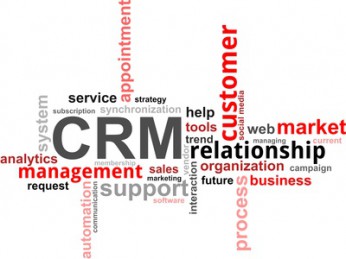 When it comes to real estate contact management, there are three important considerations to keep in mind. In this article, I’ll discuss what to look out for when in the market for a CRM.
When it comes to real estate contact management, there are three important considerations to keep in mind. In this article, I’ll discuss what to look out for when in the market for a CRM.
1. What features does it have?
Here are some of the key features you need to make sure the CRM for Agents has:
Comprehensive contact management: Agent-specific fields in the contact profile, such as mortgage details, birthdates, family members, interests, lead sources, and referrals. These fields are essential for building and maintaining lasting relationships with those in your database.
Also, ensure the real estate CRM will automatically capture your leads from anywhere on the web and allow you to automatically put these leads into a specific group and on a drip marketing campaign.
Powerful email marketing: This includes a professionally designed and written real estate e-Newsletter, drip marketing campaigns for FSBOs, buyer leads, seller leads, and more, a variety of email templates, including Just Listed and Just Sold e-Flyers, and Email Campaign Reporting to identify the hot leads hiding in your database.
Robust transaction management: Be sure your Agent CRM has features to manage all of your transactions, generate service reports, record notes about listings, list property details, manage offers, key dates, and third parties, track commissions, and keep track of your showings. These transaction management features are essential for staying organized.
As well, the real estate contact management software should come with listing and closing Activity Plans, which you can assign to listing and closings, and which will remind you to perform key activities so no detail falls through the cracks.
Synchronization and compatibility: The CRM should sync with the built-in address book, task list, and calendar on your smartphone for quick and easy access to contacts and appointments. As well, it should sync with Outlook, Mac Address Book and should be able to automatically record emails from clients such as Outlook, Gmail, and Yahoo.
The system should also be fully Mac and PC compatible, work with all tablets, including the iPad, and work well on all web browsers, such as Firefox, Safari, Internet Explorer, and Chrome.
2. Does it come with training and is it easy to use?
Does the CRM company provide a variety of easy-to-follow tutorial videos and training guides? Are there both long-form videos for in-depth learning and short-to-the point videos for users at more advanced stages? Is free customer support by email and phone included in the subscription?
Also do some research (AKA Google) to discover the company’s reputation for customer support, how easy the system is to use, and what other people are saying about the solution. What kind of reviews is it getting? Remember, if your real estate CRM isn’t simple to use, you won’t end up using it.
3. Will the company help get me started?
When you’re new to a system, it doesn’t feel good to sign up and then be left in the dark, on your own. Ask if the Customer Support Team will help you import your contacts, set up your email header and signature, and get you started on sending out your monthly e-Newsletter to your database. Sometimes all it takes to get engaged with a software is some help – that little “head start.”
If you’re looking for a great real estate CRM, IXACT Contact has everything I’ve discussed in this article. Not only has the system received tremendous reviews, includes great training, and has all the useful features I outlined, our Support Team will get you started. It’s free for your first five weeks and there’s never any contract or commitment.
[stextbox id=”info”]Check out this great blog post to help you decide which real estate CRM to choose [Tweet this][/stextbox]
Is there anything else about choosing a CRM that you’d like to know? Please leave a comment below!
[magicactionbox id=”2159″]